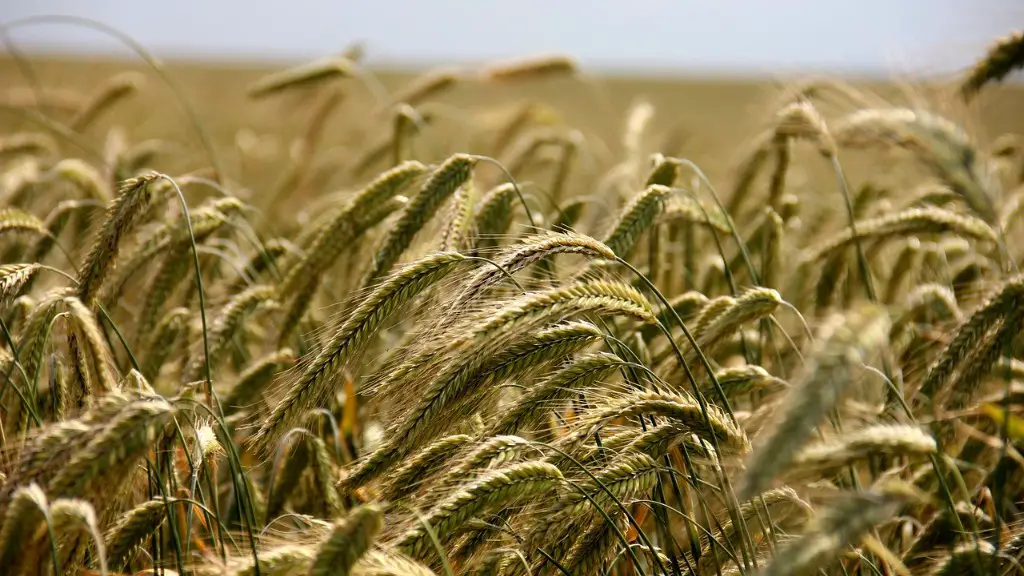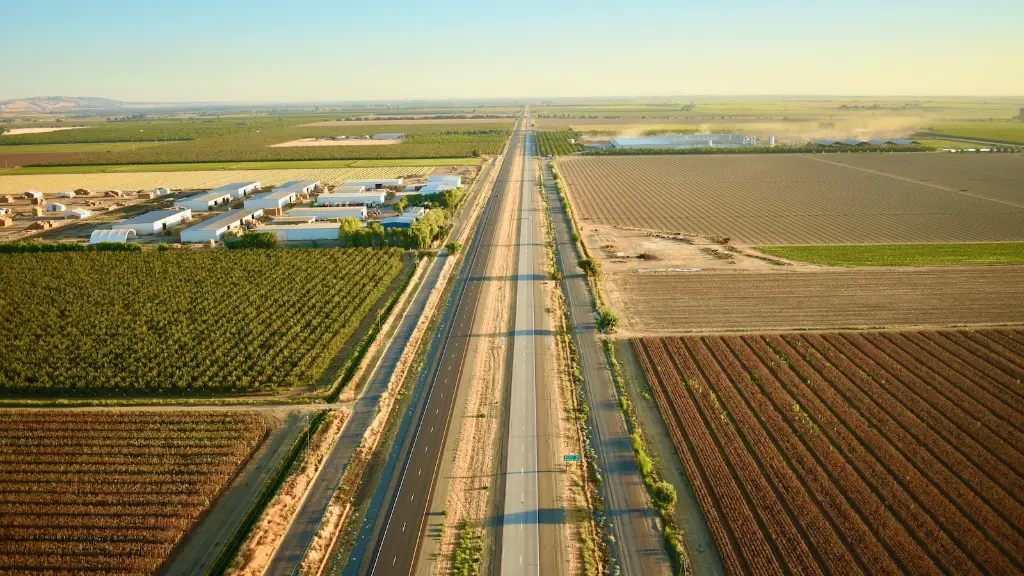Climate change is one of the most significant global challenges of our time. Agriculture is a significant contributor to greenhouse gas emissions, and thus there is a need for climate-smart agriculture to mitigate and adapt to climate change. Climate-smart agriculture are practices that help to increase productivity and resilience to climate variability and extreme weather, while reducing greenhouse gas emissions.
There is no one-size-fits-all answer to this question, as the reasons for why climate smart agriculture (CSA) is important will vary depending on the geographical location, climate, and agricultural sector in question. However, some of the key reasons for why CSA is important include:
1) CSA can help to make agriculture more resilient to the effects of climate change, by helping farmers to adapt their practices in order to better cope with extreme weather events and changing climatic conditions.
2) CSA can help to reduce greenhouse gas emissions from the agricultural sector, and can thus play an important role in mitigating climate change.
3) CSA can help to improve the productivity of agricultural systems, and can thus help to ensure food security in a changing climate.
Ultimately, the decision of whether or not to implement CSA measures will depend on the specific circumstances and needs of each individual case. However, CSA offers a number of potential benefits that make it an important consideration for many agricultural systems.
Why are climate smart agriculture practices important?
Climate-smart agriculture (CSA) is an approach to agriculture that simultaneously addresses the need to increase food security under conditions of climate change and to reduce greenhouse gas emissions from agriculture. CSA involves a combination of practices and technologies that help farmers to increase productivity sustainably while enhancing resilience and mitigating emissions.
Climate-smart programming is about adjusting all the National Society’s activities and plans so they can face new weather conditions and extremes. This includes ensuring that staff, volunteers and vulnerable people are not taken by surprise by extreme weather. By being climate-smart, the National Society can be more effective in its work to help people affected by disasters.
Why are climate-smart agricultural practices so critical to the sustainability of our water resources
Climate smart agriculture management practices are those that help to build soil health, increase carbon storage in woody plants and soil, improve water use efficiency, and reduce greenhouse gas emissions associated with agricultural practices. By adopting these practices, farmers can help to mitigate and adapt to the changing climate.
The CGIAR Research Program on Climate Change, Agriculture and Food Security (CCAFS) is a strategic partnership of CGIAR, the world’s largest consortium of international agricultural research centers, and Future Earth. CCAFS addresses one of the most pressing challenges of our time: how to transform agriculture and food systems to meet the needs of a growing population in the context of climate change.
What are 3 benefits of sustainable agriculture?
There are many ways to increase profitable farm income. One way is to promote environmental stewardship. This can be done by enhancing the quality of life for farm families and communities. Another way to increase profitable farm income is to increase production for human food and fiber needs.
CSA interventions can have a significant impact on agricultural productivity and incomes, as well as on climate change adaptation and resilience. In addition, CSA interventions can help to reduce or remove greenhouse gas emissions from the agricultural sector.
Why do we need climate resilient agriculture?
Climate-resilient agriculture is a type of agriculture that is adapted to, and can withstand, the effects of a changing climate. This type of agriculture can help to significantly lower greenhouse gas emissions and other environmental impacts, while still maintaining the benefits of agri-food systems.
There is no one-size-fits-all answer to the question of how to improve agricultural productivity. However, some key interventions that can contribute to higher yields and improved incomes for farmers include:
1. Improved seeds and planting material: Using higher-quality seeds and planting material can improve yields and help farmers to better withstand biotic and abiotic stresses.
2. New crops and crop varieties: Introducing new crop varieties that are better suited to local conditions can improve yields and farmer incomes.
3. More efficient cropping systems: Improving crop management practices and making use of more efficient cropping systems can lead to higher yields and better incomes for farmers.
4. Sustainable mechanization: The use of more efficient and sustainable farming technologies and equipment can help farmers to improve their productivity while reducing their environmental impact.
5. Improved land management practices: Implementing better land management practices, such as terrace farming, can help to improve crop productivity while also reducing soil erosion and water runoff.
What is the impact of climate change on agriculture
Climate change can affect agriculture in a variety of ways. Beyond a certain range of temperatures, warming tends to reduce yields because crops speed through their development, producing less grain in the process. And higher temperatures also interfere with the ability of plants to get and use moisture.
Smart agriculture is an umbrella term that includes a variety of different technologies and practices. By using smart agriculture solutions, farmers can increase production, conserve water, reduce operating costs, and improve the quality of their products. In addition, smart agriculture can help farmers more accurately evaluate their farms and fields, and improve livestock farming. Finally, smart agriculture can help reduce the environmental impact of farming.
How does climate smart agriculture increase productivity?
The use of improved seed varieties has increased with access to inorganic fertilizer and the FISP. These varieties are more resilient to weather variations, more efficient in water and nutrient utilization and have higher yields. This has had a positive impact on food security and farmers’ incomes.
The use of automation in agriculture can help to reduce the use of resources, as well as improve pest detection and animal health. This can lead to increased production and improved animal welfare.
What are 5 benefits of sustainable farming
There are many pros to sustainable agriculture, which is why it is becoming increasingly popular. Some of the pros include that it reduces costs, prevents pollution, saves energy, prevents soil erosion, is animal-friendly, promotes biodiversity, and improves food production with less waste and public health.
When agricultural operations are sustainably managed, they can help preserve and restore natural habitats, protect watersheds, and improve soil health and water quality. The WWF works to identify and implement better management practices for agricultural operations around the world. Sustainable management of agricultural operations is critical to the health of our planet and its people.
What are two advantages of sustainable agriculture?
Sustainable agriculture practices are key in preserving our environment for future generations. By reducing our reliance on nonrenewable energy, using fewer chemicals and saving scarce resources, we can keep the land healthy and productive. With the world’s population continuing to grow, it is more important than ever to adopt sustainable practices in order to ensure that there is enough food to go around.
The average climate smartness score is simply the average of an individuals score on each of the eight climate smartness dimensions. This provides a good overview of how climate smart an individual is, and how this relates to the three main pillars of climate change – adaptation, mitigation and productivity.
Warp Up
Climate-smart agriculture (CSA) is an approach for developing and applying integrated climate-smart solutions to help farmers and agro-pastoralists to adapt to climate change and become more resilient to extreme weather events, while simultaneously reducing their greenhouse gas (GHG) emissions and improving their incomes and agricultural productivity.
Climate smart agriculture (CSA) is an approach to agriculture that seeks to address the challenges posed by climate change. CSA aims to increase productivity and incomes while reducing greenhouse gas emissions and enhancing resilience to climate change. It is an approach that can be tailored to the specific circumstances of different farming communities.





